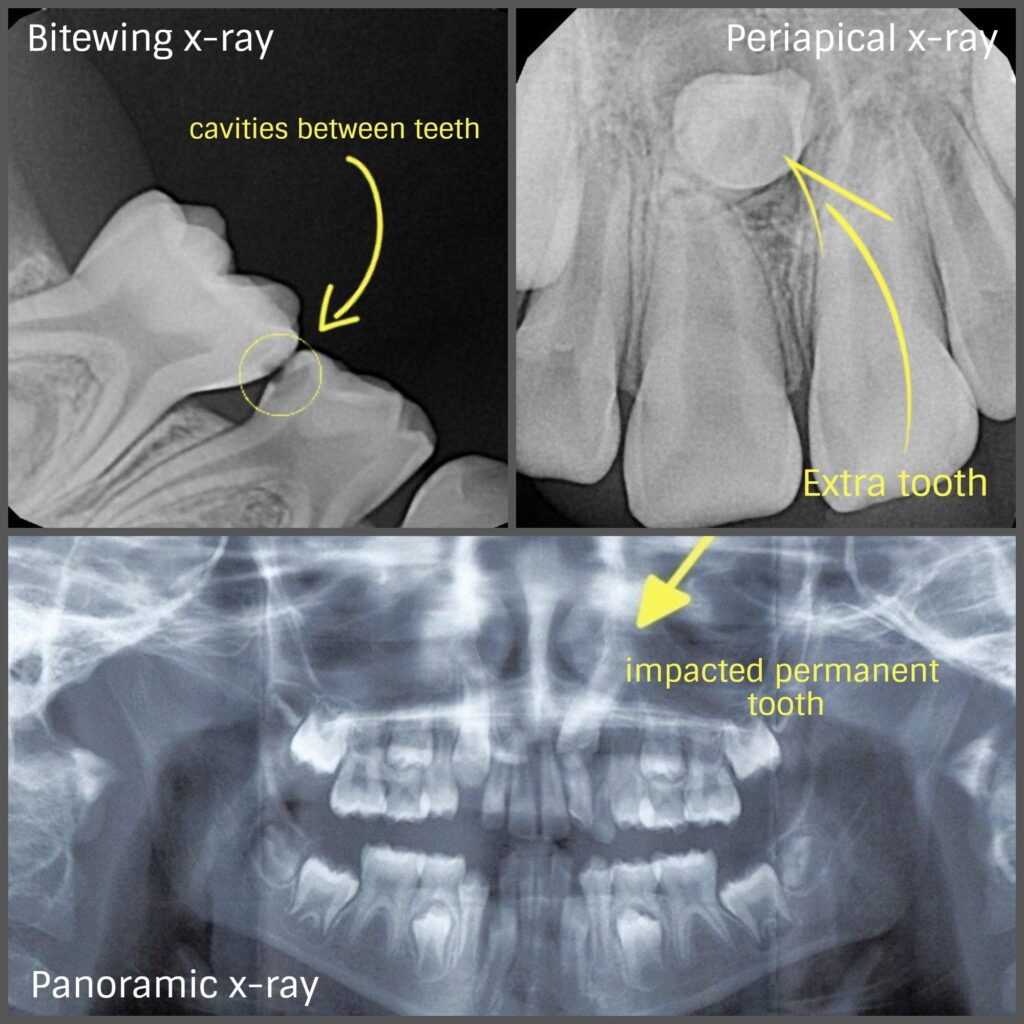Are dental x-rays necessary? Are they safe? How often should they be taken?
If you've had questions like these, you're not alone! Here are some of our most frequently asked questions about dental x-rays from REAL parents like you.

Why do we need to take x-rays if my child's teeth are fine?
Many problems begin painlessly and cannot be seen with the naked eye. X-rays enable the doctor to clearly see the anatomy of your child's teeth, gums, and bone structure to check for abnormalities. Treatment is less complicated, more cost-effective, and has a higher chance of a successful outcome when problems are found early, which is why the doctor doesn't want to wait until something hurts to look at it.
Do x-rays need to be taken at each dental visit?
Not necessarily. Every child's needs are different and the dentist will make recommendations in the best interest of your child's oral health.
Why does my dentist recommend taking different kinds of x-rays?
Different types of x-rays are used to evaluate different structures of the mouth. When looking for something small, like a cavity between the teeth, a "zoomed in" view is necessary. When looking at larger structures, like the development of the jaw, a "zoomed out" view is more appropriate. Some x-ray types require different angles and film sizes that help your doctor get the clearest picture of your health in order to make an accurate diagnosis.

I'm worried about radiation exposure. Are dental x-rays safe?
Yes. Dental imaging today is the safest it has ever been. Dental x-rays are already low in radiation because it's not necessary to penetrate through many layers of the body to get to the teeth. Digital x-ray technology lowers the radiation level even further. To put it in perspective, it would take 50 dental x-rays to equal the same radiation as a flight from New York to San Francisco. One dental x-ray is typically the same radiation exposure as eating 2 bananas. Curious what other daily events expose you to more radiation than a dental x-ray? Check out this article to learn more.
It's important to weigh the risks when it comes to radiation exposure. A patient is at a much greater risk of harm from an undiagnosed dental issue than from the minimal amount of exposure in a dental x-ray.
My child had x-rays taken at another dental office 8 months ago, can't you look at those instead of taking new ones?
A lot can change in the mouth over time, and no one can predict how fast cavities will grow and spread onto other teeth. To make an accurate diagnosis, the doctor must have the most up to date information. Seeing is knowing. Not seeing is guessing. Our doctors will not guess when it comes to your child's health.
Do you have a question not featured here today? Please ask the doctor and staff at your next check-up!












